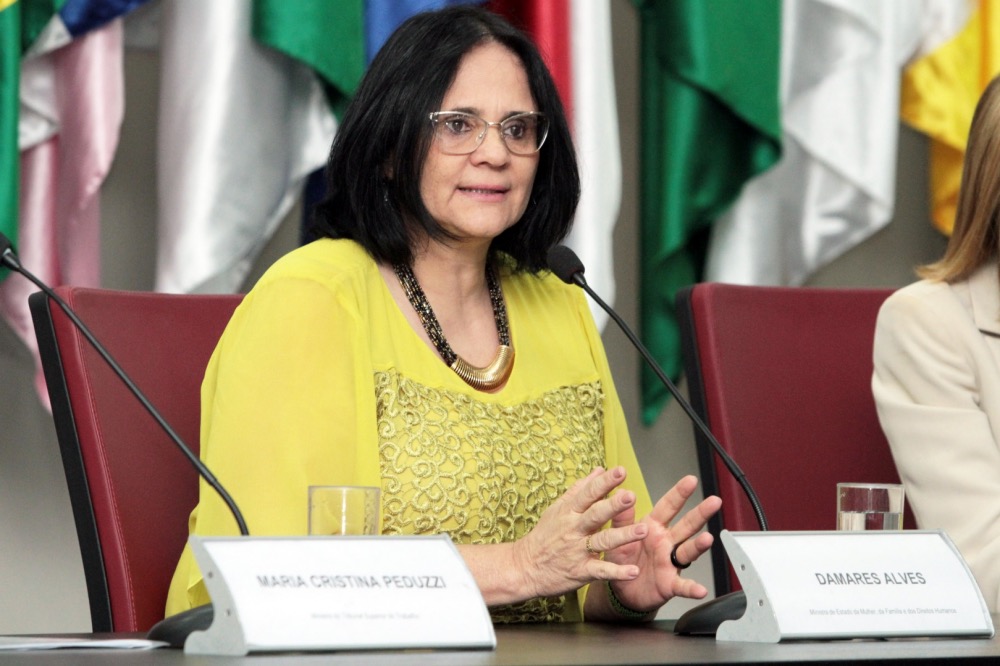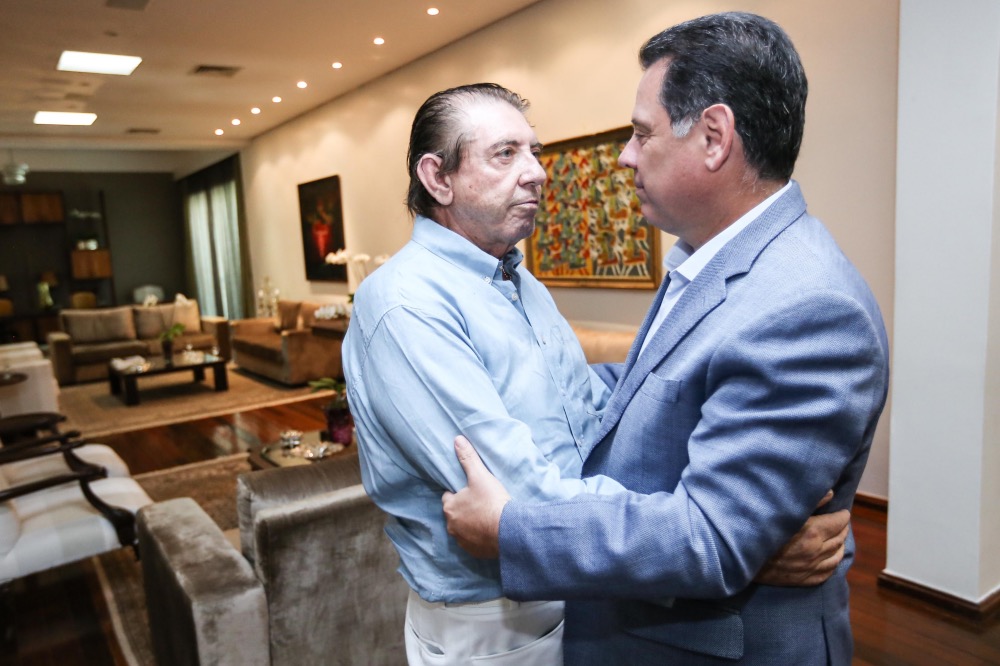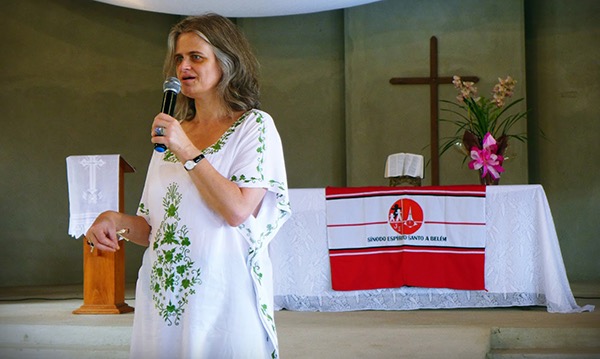
EDUARDO CAMPOS LIMA looks at a bill in Brazil which would toughen penalties for religious leaders who commit sexual abuse – and why some are viewing it with suspicion…
Sao Paulo, Brazil
As soon as the new leaders of the Brazilian Senate and Chamber of Deputies took office earlier this year, the arch-conservative President Jair Bolsonaro presented to them a list of bills that his administration wants the Congress to move forward. One of them is a proposition to toughen up penalties for religious leaders who commit sexual abuse. The idea has been met with suspicion among religious women and activists in the South American country.
The project stipulates that defendants convicted for sexual crimes receive sentences 50 per cent higher if they are religious leaders who abused churchgoers. It was initially presented in July, 2020, and has been incorporated to other similar projects proposed by legislators. Despite Bolsonaro’s apparent urgency to approve it – as he emphasised during his meeting with the Congress leaders in February, the bill hasn’t yet been analysed by lawmakers yet.

Damares Alves. PICTURE: William Meira, Brazilian Government
The bill also changes the statutes of limitations for that kind of crime, raising from 70 to 80 years the maximum age of a defendant that can be convicted. And while it doesn’t focus only on spiritual leaders but on any professional that takes advantage of a relationship of trust to commit abuse, its proponents have accentuated its religious dimension.
The mind behind the idea, Damares Alves, Bolsonaro’s Minister of Women, Family, and Human Rights, was herself allegedly a victim of sexual abuse in childhood. An evangelical pastor, Alves is a well-known advocate of conservative values in Brazil and worked for 20 years as a legal advisor for evangelical congressmen in Brasilia before being appointed to Bolsonaro’s cabinet.
“We understand Damares Alves’ concerns, but this kind of bill raises differences between citizens and may have dangerous consequences [by making a kind of abuse more serious than others].”
– Pastor Raul José Ferreira, Jr.
According to Marco Carvalho, Alves’ advisor, one of the strongest reasons for the bill was a scandal involving João Teixeira de Faria. A famous faith healer in Brazil, Faria, known as John of God, was denounced by hundreds of women at the end of 2018 for abuses perpetrated over three decades.
“I was told by the prosecutors of the case that many victims weren’t able to press charges against him because of the statute of limitations. No matter how hard the authorities strive to investigate the crimes, part of the victims stay out in cases like that,” Carvalho told Sight.
He said that there’ll be no difficulties in passing the bill in Congress. “It has a great appeal among the lawmakers,” Carvalho affirmed.
But Pastor Raul José Ferreira, Jr, who coordinates the communications of the Evangelical Bloc – the group that gathers more than 200 Evangelical Congressmen in Brasilia, doubts that the bill will be approved.
“We understand Damares Alves’ concerns, but this kind of bill raises differences between citizens and may have dangerous consequences [by making a kind of abuse more serious than others],” he told Sight.
According to anti-abuse activists, Brazil is one of the countries with the highest number of sex crimes against children and women in the world. In the religious field, the reality is equally disturbing. Underreporting is huge, so nobody knows for sure the real size of the problem in the country.
In the past few years, the number of collective cases, in which the victims of a religious leader have organised and denounced offenders together, has substantially grown. One of the groups that has been leading the effort to fight religious abusers, Combate ao Abuso no Meio Espiritual (Combat to Abuse in the Spiritual Field, known as Coame in Portuguese), has helped 1,643 victims of 32 spiritual leaders between the beginning of 2018 and June, 2020.
“In Brazil, there’s a culture of normalising since childhood the fact that families conceal sex abuse. Extremely emotionally needy families blindly trust in powerful figures – religious leaders who present themselves as the ‘fathers’ of a group,” member of Coame, Carol Steiner, told Sight.
Steiner affirmed that the power of religious leaders in Brazil transcend the sphere of their churches and communities. “It’s usually combined with political, economic and legal power. So, it’s hard to secure that justice be done. The victims have to overcome an almost insurmountable fear in their search for reparation,” Steiner added.
Most victims are children, teenagers, and women – and are generally people of low income, Afro-descendants and people with a low level of education.
“The largest religious communities have a more extensive record of abuse than the smaller ones, given the extremely hierarchical structures they have to protect themselves,” Steiner said. But the culture of abuse in the Brazilian spiritual sphere is omnipresent.

John of God (left) meets with the former governor of Goiás State, Marconi Perillo, in 2017. PICTURE: Henrique Luiz, Government of Goiás State.
The most notorious abuse scandal in Brazil in the past few years, the avalanche of accusations against João Teixeira de Faria – at least 300 between the end of 2018 and the beginning of 2019 – led to his conviction at the end of 2019.
Operating in the small city of Abadiânia, in Goiás State since the 1970s, Faria had built a reputation as a powerful Spiritist medium, able to channel the spirits of deceased physicians and perform surgeries.
Over the years, thousands of Brazilians and foreigners went to Abadiânia in search of a miraculous cure, and Faria became a celebrity faith healer. The city developed a huge structure to welcome the visitors. Media personalities like Oprah Winfrey and Shirley MacLaine visited him and international followers organised tours to countries like Germany and Australia.
The most notorious abuse scandal in Brazil in the past few years, the avalanche of accusations against João Teixeira de Faria – at least 300 between the end of 2018 and the beginning of 2019 – led to his conviction at the end of 2019.
His rise was only possible due to the strength of the Spiritist movement in Brazil, a doctrine first systematised by the 19th century French educator Allan Kardec and greatly popularised in the country by the medium Chico Xavier (1910-2002). Nowadays, about three per cent of the 211 million Brazilians are Spiritists, but at least 40 million people sympathise with Spiritist beliefs, especially reincarnation.
But according to journalist Marcel Souto Maior, Chico Xavier’s biographer, Faria didn’t respect basic principles of the Spiritist movement.
“If you get into an allegedly Spiritist centre and identify a profit-bound machine, you need to take care,” he told Sight. “Why are people indirectly charging you money for a spiritual procedure? Why are crystals and fluidified water being sold? These things shouldn’t happen in Spiritist centres,” he argued.
Souto Maior explained that the whole atmosphere created around Faria led visitors to see him as a powerful and blessed man.
“His aids were all the time talking about his miracles. At the same time, most people were very fragile due to serious diseases. That was a dangerous combination”
Indeed, Faria characterised all the elements that commonly constitute the personality of a religious sex abuser, according to Carol Steiner: the need to be the focus of veneration; the belief that he has received his power from God; a manipulative character; the ability to seem charismatic when it’s useful.
Those personality traits are the opposite of the model of virtue promoted by the Spiritist movement, explained Souto Maior. “There’s always a risk of new cases, because there are human beings involved. But the Spiritists are vigilant and prepared to react to that kind of wrongdoing,” he said.
Such characteristics can also be seen among leaders of the major Christian churches in Brazil and reflect the longtime history of clericalism in the country.
“Clericalism is normally associated with the history of the Catholic Church in Brazil. But even the Protestant churches are clericalist. We’ve been seeing it in the leaders’ attitudes and even in their clothes. There’s a structural problem, the idea that a religious leader can do anything,” explained the Lutheran pastor Romi Bencke, who’s the secretary general of the National Council of Christian Churches in Brazil, an ecumenical organisation.
In Bencke’s opinion, most theological schools have taken out of the curriculum topics connected to human rights, something that further weakens the anti-abuse stance among the clergy.
A few churches – like the Lutheran, for instance – have been establishing protocols to deal with gender justice issues, she said. But there is much work to be done yet.
Catholicism, which is the religion of half of the population in Brazil, accounts for the largest number of cases of sex abuse. Religion sociologist Regina Jurkewicz explained that the church usually makes a huge effort to avoid priests who perpetrated abuses to be criminally sued.

Romi Bencke. PICTURE: Personal archive.
“There’s a structural problem, the idea that a religious leader can do anything.”
– Lutheran pastor Romi Bencke, secretary general of the National Council of Christian Churches in Brazil.
“The priest ends up being transferred to a different parish and his new community is not informed of his past acts. The abuser is protected by the institution,” she told Sight.
In Jurkewicz’s opinion, it’s not enough to intensify penalties for abusers. “Women and teenagers must have their rights secured. Solutions are linked to access to education – including sexual education – and gender equality in the church,” she added.
Methodist Pastor Rute Noemi de Souza has been receiving reports of abuse perpetrated by religious leaders over the past months. The victims send her their stories of suffering and despair, in many cases fearing retaliation if they report the crimes to the police. Souza keeps a social media channel where she discusses abuse and, with the permission of the victims, denounces the abusers.
“I’m in touch with many victims of rape. Part of the feminist movement advocates that denouncing is the first step in order to heal. When the victims denounce their abusers, they take the weight off their shoulders,” she told Sight.
Souza was herself a victim of different kinds of abuse. At first, her pastor told her very inappropriate things when she was only 15. “I had never heard that kind of thing. Later, I knew that other six girls suffered the same kind of abuse from him,” she said. A couple of years ago, she was the victim of sexual imposition.
“Many pastors make you believe that you have to accept abuse and violence. I get frustrated when I make a denouncement and no other woman pastor reacts. They fear the institutional consequences,” she added.
Considering the longtime history of abuse in Brazil, Damares Alves’ bill may only be addressing the tip of the iceberg.





